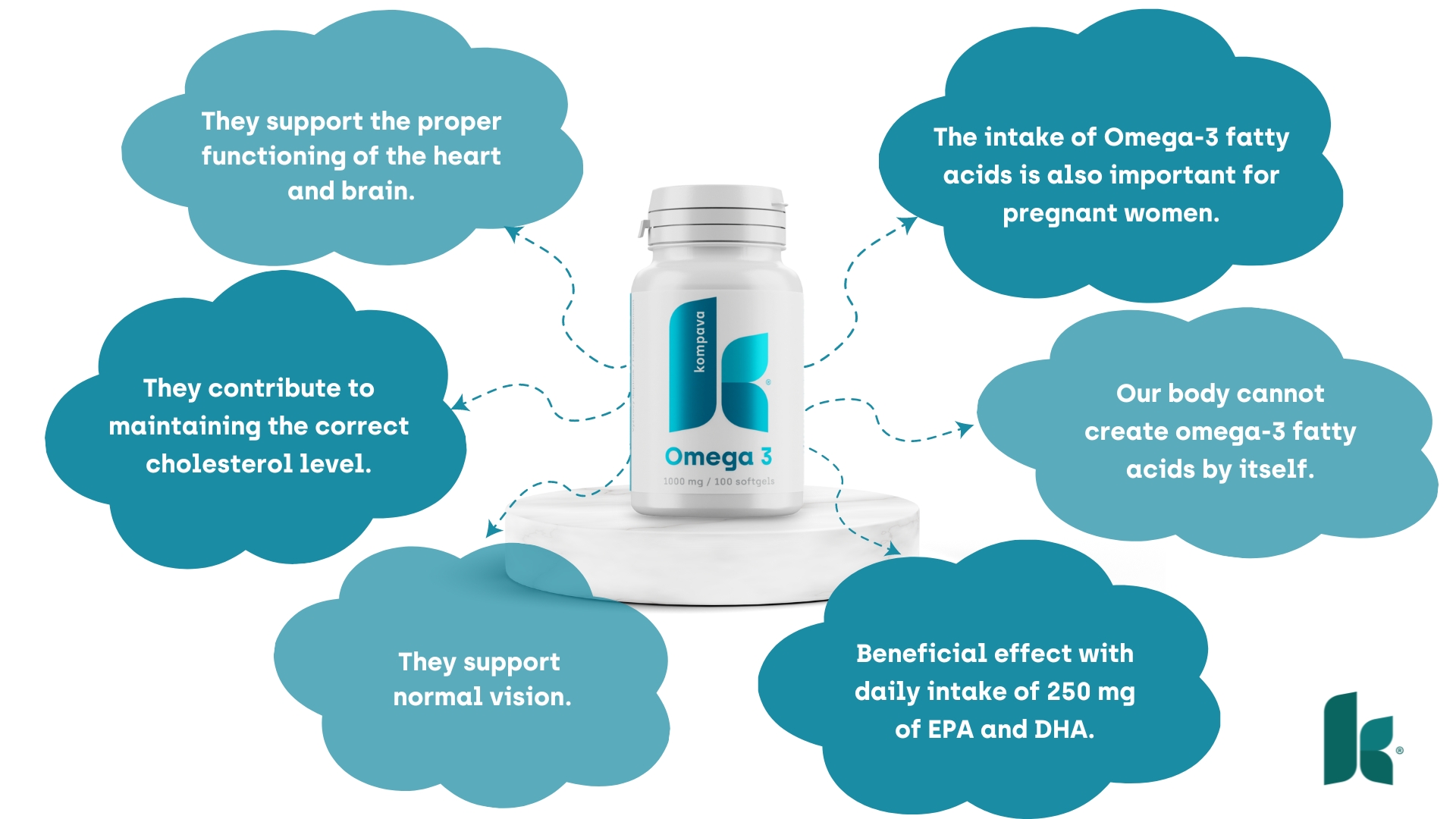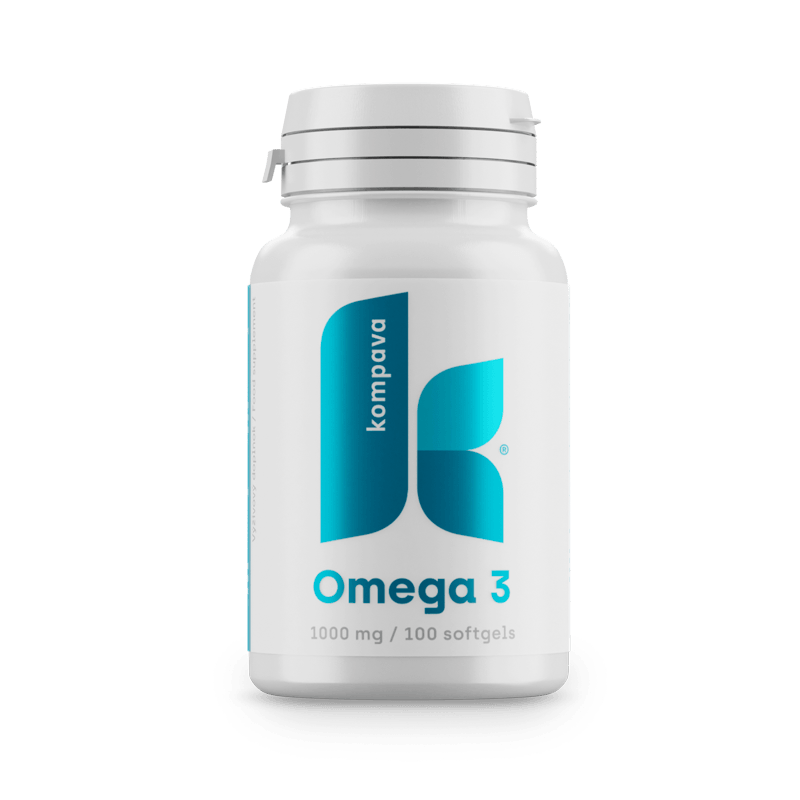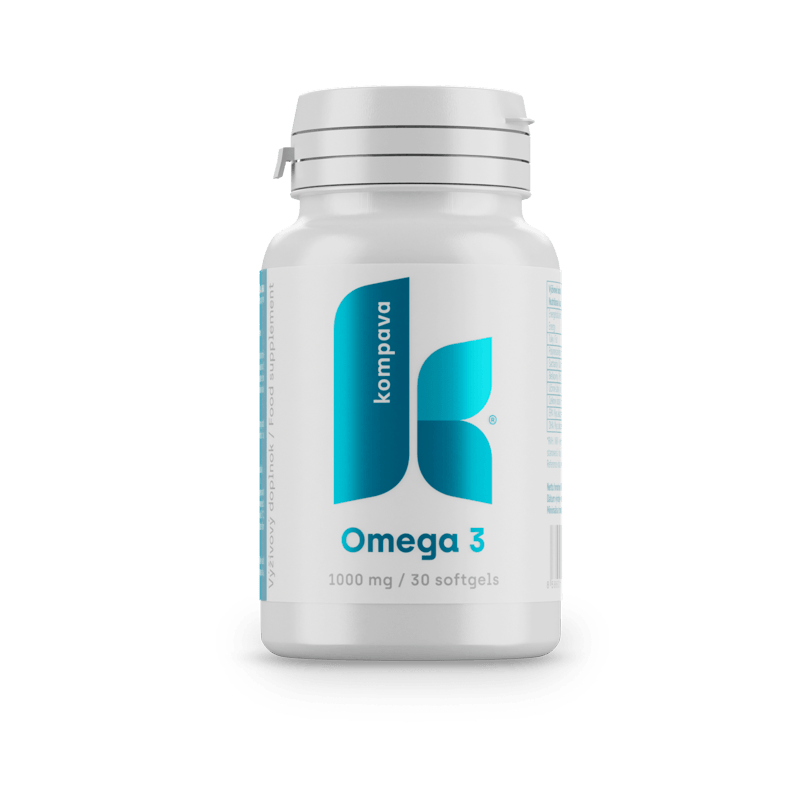
Omega-3 fatty acids are essential fats that are crucial for the proper functioning of the body. They are mainly found in fatty marine fish. Our body cannot create omega-3 fatty acids by itself, so it is necessary to constantly replenish their level in the body. The latest research shows that the majority of the population is deficient in omega-3 fatty acids. Omega-3 fatty acids are made up of eicosapentaenoic acid (EPA) and docosahexaenoic acid (DHA). For the human body, these two fatty acids are absolutely essential, and their deficiency leads to degeneration of the body in many ways.
A lack of omega-3 fatty acids can be manifested by increased fatigue, dry skin, impaired memory and concentration, brittle nails and hair, or constipation.
Omega-3 fatty acids contribute to the maintenance of normal functions of the brain, vision and blood (they can have the effect of reducing blood density and thus contribute to reducing the risk of platelet aggregation leading to stroke). They help maintain cholesterol levels and support cognitive functions such as concentration and memory. Omega-3 fatty acids are also important for the normal condition of the retina of the eye. Consuming Omega-3 fatty acids is also important for pregnant women to support healthy brain development in the baby. They can also help maintain healthy blood vessels and normal blood pressure during pregnancy.

Omega-3 contains:
- Fish oil
A combination of EPA and DHA acids that contribute to the normal functioning of the heart, brain and health. A beneficial effect is achieved with a daily intake of 250 mg of EPA and DHA.












